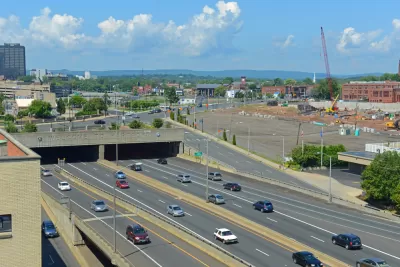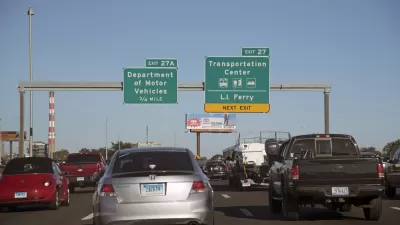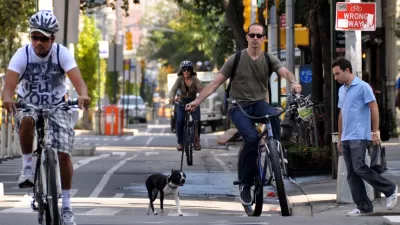A representative of the Regional Plan Association calls for Connecticut's political leadership to go even further in changing the transportation and land use planning paradigm in the state.

Melissa Kaplan-Macey, vice president of state programs and Connecticut director at the Regional Plan Association, writes an opinion piece for the Hartford Courant making the case for a paradigm shift in transportation funding in the Constitution State.
The opinion piece follows shortly on the heals of Connecticut Governor Ned Lamont releasing a new $21 billion capital investment plan called CT2030, which Kaplan-Macey describes as a good, but not perfect, start to achieving the changes called for in the article.
The overarching goal of the plan is to reduce commute times and improve commuter experience. It includes highway improvement projects that seek to reduce congestion, rail improvement projects that speed commutes and limited bus transit investment. It proposes funding these improvements with a mix of federal low-interest loans and revenue from a long-overdue electronic tolling system.
Here's the "not perfect" part:
But the state should reconsider its pursuit of highway expansions that induce traffic and increase air pollution. Instead, the state should manage demand on existing roadways and invest in public transit.
To make the case for an urban focus on transportation spending and additional public transit investments, Kaplan-Macey explains induced demand, cites the rising demand for walkable neighborhoods with access to public transit, laments Connecticut's historic neglect of its urban centers, and builds a counter argument for the already emerging Republican opposition to the CT2030 proposal.
FULL STORY: We should invest in urban centers, not expand highways to get around them.

Alabama: Trump Terminates Settlements for Black Communities Harmed By Raw Sewage
Trump deemed the landmark civil rights agreement “illegal DEI and environmental justice policy.”

Study: Maui’s Plan to Convert Vacation Rentals to Long-Term Housing Could Cause Nearly $1 Billion Economic Loss
The plan would reduce visitor accommodation by 25% resulting in 1,900 jobs lost.

Planetizen Federal Action Tracker
A weekly monitor of how Trump’s orders and actions are impacting planners and planning in America.

DC Extends Application Window for Outdoor Dining Permits
District restaurants will have until the end of November to apply, but businesses with permits in rush hour parking lanes must end operations on July 31.

Wind Energy on the Rise Despite Federal Policy Reversal
The Trump administration is revoking federal support for renewable energy, but demand for new projects continues unabated.

Passengers Flock to Caltrain After Electrification
The new electric trains are running faster and more reliably, leading to strong ridership growth on the Bay Area rail system.
Urban Design for Planners 1: Software Tools
This six-course series explores essential urban design concepts using open source software and equips planners with the tools they need to participate fully in the urban design process.
Planning for Universal Design
Learn the tools for implementing Universal Design in planning regulations.
Caltrans
Smith Gee Studio
Institute for Housing and Urban Development Studies (IHS)
City of Grandview
Harvard GSD Executive Education
Toledo-Lucas County Plan Commissions
Salt Lake City
NYU Wagner Graduate School of Public Service





























